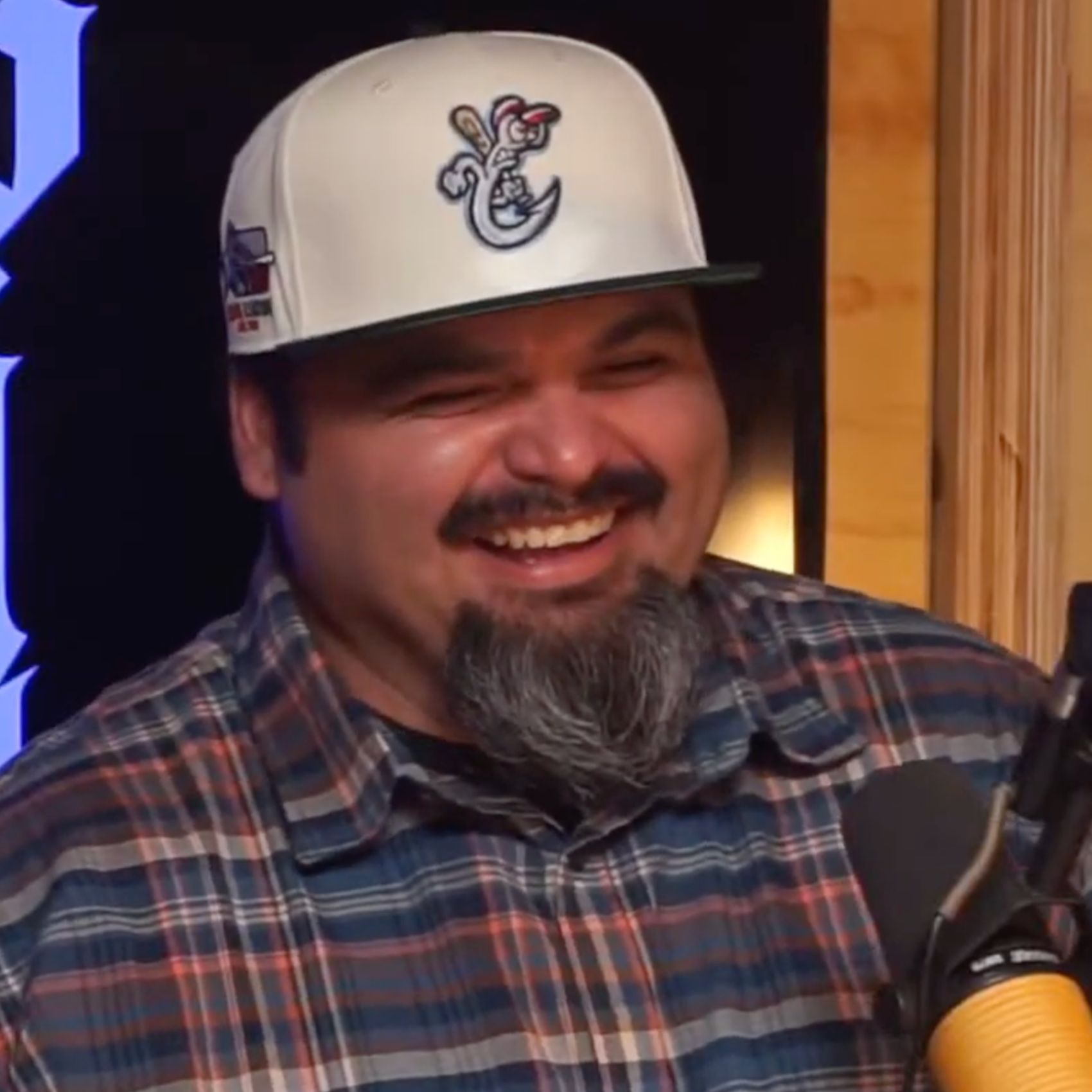Episode Transcript
[00:00:00] So I recently had to borrow somebody's car the other day because my car had broke down and I needed to use the car for their car for a few days, which was cool because it was like a really new car compared to mine.
[00:00:19] And. Yeah, so what this taught me was most people on the road don't own their car.
[00:00:27] The bank owns their car until they pay it off.
[00:00:33] So it's interesting that the car that I was in was a nice car. So a lot of people were looking at me because it was a nice car, right?
[00:00:42] And then I'm looking at those people like, you don't own your car.
[00:00:49] Some of them are driving very carefully with it. Some of them are driving reckless with.
[00:00:57] Just reminded me of how awesome it is. Oh, the awesome feeling that I get when I know that my cars are paid for, you know what I'm saying?
[00:01:09] Because you don't. Oh, you don't feel like. You don't feel like a slave to the bank, I guess you could say. Or you don't feel beholden to the bank or somebody that owns your car. You know that. So that's an awesome feeling to have that. And it's an awesome feeling to have that extra money going to my pocket instead of going to the bank.
[00:01:34] So I've also been taking the bus lately because my car is out of commission. You know, it hasn't it.
[00:01:45] My car's out of commission, so I have to find other means of transportation. So I've been taking the public. The. The public bus to. I mean, from work. I get a ride to work and I take the bus back home from work.
[00:02:00] And that in itself is.
[00:02:02] I would rather do that than get into a car payment because I'm. Because I'm probably going to have to get another car.
[00:02:15] So I would rather take the bus. I would rather use public transportation while saving money to buy a car.
[00:02:25] To buy a new car, I would say, or a relatively new car because I don't want the payments. I would rather do that than be beholden to the bank for my car.
[00:02:39] Not only that, beholden to the bank for.
[00:02:46] For something that is tangible, that is going down in value to where I end up paying more for what the car than what it's worth once as soon as I make that transaction, to get the car in debt.
[00:03:08] So it makes a lot more sense to me to save the money to buy the car, which is an. Which is a.
[00:03:16] I want to say an asset, which is an asset that goes down in value.
[00:03:24] Looking up asset real quick. Every resource with economic Value that an individual or organization owns, which can be used for the payment of debts.
[00:03:34] Assets are categorized as either tangible, physical, like cash or real estate, or intangible, non physical.
[00:03:43] What is something that goes down in value?
[00:03:51] What is it called?
[00:03:57] Depreciate.
[00:03:59] So depreciating an asset.
[00:04:04] What is it called when something goes down?
[00:04:06] Depreciate.
[00:04:09] So we'll just say something that goes down in value just to alleviate that. All that. If you know what it is, if you know what to call it, put it down below. That's cool with me. But I would rather put money into something that is going up in value.
[00:04:24] And the, and the biggest thing we could think of is a house.
[00:04:31] So I would do my first house, which is already paid for.
[00:04:35] That's the first, that's, that's the only last thing that I had with debt to pay off my property, our property. My wife and I, we own it.
[00:04:50] I don't want to leave her out.
[00:04:52] That's an important piece for sure.
[00:04:57] So I think that that pro. That thing to go in debt is a thing to go in debt for because it's going up in value.
[00:05:06] I mean, you could just look at the property I just got. I'm looking at my property tax statement that's pinned to the wall right behind the computer.
[00:05:15] They're trying to go up every year.
[00:05:18] That's not to say it's going to sell for that much. Whatever, whatever all this argument, you can have all that. My point is put money into something that's going to go up in value, not down in value like a car. So that's what that taught me. Whenever I was, I was using somebody, I was borrowing a car, I was using somebody's car. They let me use it for a couple days and it was cool, honestly, like, to have to, to be in that, that car. I mean, it's new, smelled new. It had Bluetooth capability. My, my, my old, my truck, my old truck had cd. That's how old it was. And I was using it to, from work, which, which basically that's what it was for, you know, so it was cool to Dr. To be inside that newer car.
[00:06:03] I'm not going to lie. I mean, but, and I'm thinking to myself, but at what expense am I going to sacrifice the, the, the, the tangible thing going down in value and, and losing money on it just so I can be in a nicer car that has all these automatic windows, reverse camera, you know, a Bluetooth radio capability. You could put movies on, all these bells and whistles and you know what I'm saying?
[00:06:37] What, at what expense? You know, and, and, and in my mind I'm like, man, all this extra money that was going in interest to these banks and something that's going down in value, I could have put it in the mark like in a, like in a 401k or a Roth IRA, in good growth stock mutual funds or index funds.
[00:07:03] That money that I'm putting in interest, it could have gone to my retirement or, or an S P 500 index fund for growth for five plus years.
[00:07:17] You know, I have to say, you take it out after seven years, you know, it, it would have commute accumulated growth depending on if the market's good till you could take it out, put it out as a down payment for your house or something like that. You know, I've, I haven't done that. Don't use this as financial advice. This is just what's in my mind.
[00:07:37] So saving up cash for a car is more, I think it's more logical whenever it comes to borrowing money or, or be at borrowing money for a car. Just save up, I would say just save up the cash. Pay for a cash. You don't have to deal with interest.
[00:07:58] You don't have to deal. I mean you can take the hit because that's basically what you're doing when, when you're buying a car, you're taking a hit financially because it goes down in value.
[00:08:13] You know, so that's, that's just how I see, that's just how I view it. And I would rather take a. Take, take the bus home for however long it takes for me, for, for us, for my wife and I, for my family to save money to get another vehicle, you know, because it, it's tough with just one vehicle, you know, two vehicles. Why not? You know, and the rule of thumb Is to have 20, have only 25% of what you own, right? And this is not debt at all. This is what you actually own outright. No debt, 25, whatever that amount is. Like say it's, it's a thousand, it's, say it's a hundred dollars that you own.
[00:08:59] I can't do big numbers right now. So, but, so say you have a hundred dollars that you own.
[00:09:05] 25 of it should go to toys.
[00:09:08] That's the rule of thumb.
[00:09:10] 25% of your, of what you own outright, no debt should go to toys, cars, boats, jet skis, motorcycles. Anything with a motor will go down in value. The rule of thumb is to have 25% of what you own of that in things that have motors.
[00:09:31] I would rather so sorry, guys. I'm real passionate about this. Coming up on 10 minutes.
[00:09:37] Yeah. So I would rather pay cash for a car, take the bus if I have to ride a bike. I haven't got to that point, but I'm seriously considering it to save money to buy a car so that I can have that method of transportation again, be for myself to get to and from work and for my family, take my kids to the park from, you know, my wife wants to use it to go to the grocery store or whatever she she wants to do with it. We can use it knowing that we're not in debt for it and knowing that we have that extra money to go into places that will actually grow the money.
[00:10:23] More on that, you guys, later. Appreciate y'. All. Thanks a lot. Hope this helps. Bye.

